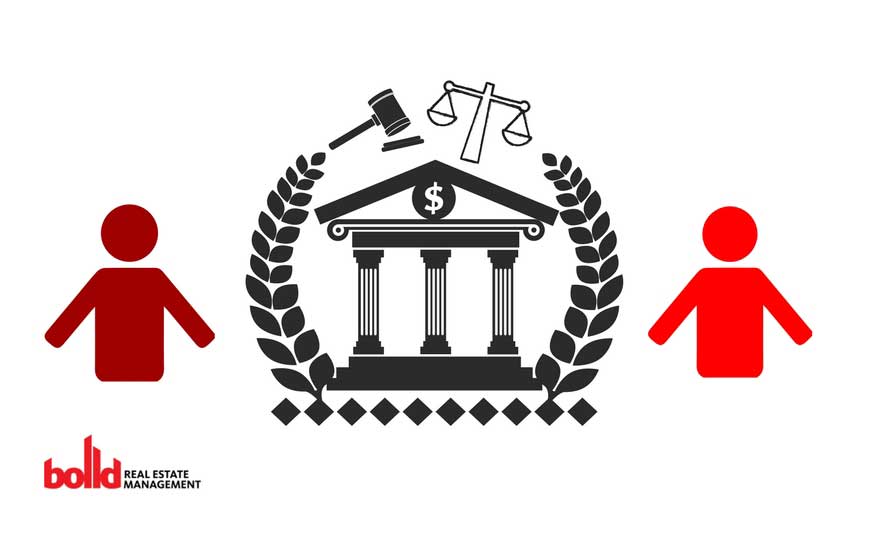There may come a time in your career as a landlord in which legal action will become necessary. Some landlord tenant problems are minor but could escalate.
Whether it is necessary due to tenants refusing responsibility for the repairs of damages they committed or a need for eviction, legal action may be required. You will need to know your local laws in and out due to the many forms you must fill out, notices needed to be given the proper time, a waiting period after notices are delivered, and potential fees, there’s a lot to remember.
A lawyer isn’t necessary during this part of the process, but you may need one later.
Each province or territory may have its special form for these sort of issues, so you want to make sure to pay close attention and do your research.
See More: 3 Effective Ways To Begin a Landlord-Tenant Relationship
If warnings or notices don’t resolve your problem and you find yourself needing to go through local rental authority to force an action, attention to the detail in the law is crucial.
A smart way to protect yourself is being transparent to refrain from any landlord tenant problems escalation.
You need to pay extremely close attention to the forms when you are filling them out because errors could cause a delay in the process or even dismissal of the issue entirely.
[inf_infusionsoft_inline optin_id=optin_2]
How To Protect Yourself as a Landlord
- Keep your property insured and always require your tenants to have a tenant insurance
- Consult with competent legal counsel of your city or province
- Keep your tenancy agreement and make sure the tenant and yourself sign it
- Keep things recorded and conduct move-in inspection, regular inspections as well as move-out inspections
How to handle complaints
If you have a complaint with the tenant, you need to be aware of how to go about presenting it and handling the situation properly.
First, you should put any and all complaints and warnings in writing.
See More: 9 Problem Common Problems of a Landlord and How To Fix Them
Obtain copies of the local noise, parking, and garbage bylaws for tenants, neighbors, and their agents. To obtain these copies, you need to contact your local city councilor’s office located in your city or town hall. If it’s necessary, you always have the right to call the police.
After the point in which you contact the police, you should continue going through legal channels. You wouldn’t want to be accused of shirking any laws and find yourself in trouble or your lawsuit dismissed.
In Conclusion
It’s very crucial that you pay close attention to facts when taking legal action.
You should be sure to take precise records during the entire time of tenancy so that, should your tenants try to skip out on rent or claim you didn’t reimburse them; you have proof.
If dealing with a complaint at a police station, be as detailed as possible.
See to it that you send notices and warnings and attempt to resolve the issues before contacting authorities. You want to avoid unnecessary legal fees as much as possible.
Ensure that you are well versed in your local laws so that you’re sure to be clear of any potential issues and clear of running the risk of having your lawsuit dismissed.
If you are not confident enough to cover any landlord tenant problems on your own, your best option is to hire a property manager who will do all the work for you.
[inf_infusionsoft_inline optin_id=optin_11]


